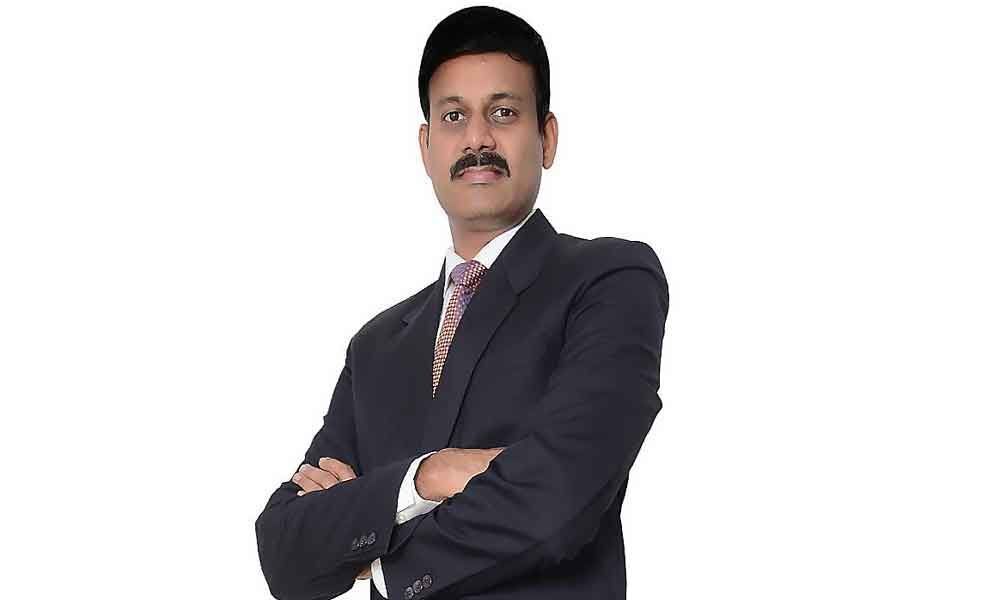Live
- Health minister for action against ragging offenders
- HMWSSB lays focus on commercial buildings to fix sewage problem
- Rich tributes paid to Ramamurthy Naidu
- Denmark’s Victoria Crowned Miss Universe
- Vaishnaw flags 4 major challenges faced by news media
- TGCHE looks for a 360-degree ‘Look-in-India’ model
- High priority to strategic partnership with Nigeria
- TG govt scraps road tax, registration fee on EVs
- India test fires ‘un-interceptable’ cruise missile
- ‘Antharanga Veekshanam’ book released
Just In
People need to trust their doctor first


Now-a-days Google assistance and social media is widely used by people to find, collect or collate information on the subjects of their choice.
Now-a-days Google assistance and social media is widely used by people to find, collect or collate information on the subjects of their choice. But, this eagerness to hook onto online media to know everything is increasingly creating problems for doctors, when the patients try to pose as they know about their ailments and pose needless – and sometimes endless – questions on the choice of treatment arrived at by their doctor.
"Half knowledge can be not only irritating but also dangerous," avers Dr Sanareddy Rajesh Reddy who is Brain, Spine & Endovascular Neurosurgeon and currently associated with Apollo Institute of Neurosciences, Hyderabad.
Technology helps us in many aspects, but people need to think whether it is really needed before seeing a doctor. "Some patients even come up with the kind of treatments they need, even without consulting a doctor. I was surprisingly asked – why you need to start this treatment. When I wondered how they came up with this poser, I got very a funny answer that they Googled it," says Dr Rajesh Reddy. Cautioning people not to equip themselves with all information that they claim to be in need of, especially in medical matters, advises the doctor. But, this is what happens around us often.
We all must have been listening to the increasing rates of brain strokes which is leading to the death and disability in India and the reason can be anything like diabetes, high blood pressure, obesity and a lot more. In an interview with a leading financial paper, Dr Reddy had once observed that the patient often ignores the early signs and symptoms of it and delay his treatment until more dramatic symptoms take place. It is important in stroke to restore blood flow as soon as possible, he stressed.
In one of his research papers, Dr Reddy says strokes are caused by a clot that blocks an artery and restricts blood flow to the brain or an acute ischemic stroke which can be prevented through Stent Retriever. It is inserted via a catheter through a pinhole in the groin area to the targeted vessel in the brain. It is helpful in removing the blood clot and re-establishing the blood flow later it is removed from the patient.
He observes an endovascular neurosurgeon fixes defects in the blood vessels without actually opening them up. It can be treated and its impact can be reduced; however, a patient needs to receive his medical treatment in time. Lately, Stent Retrieval therapy has emerged as a promising approach which is now being used at many leading hospitals across India.
About the doctor
Dr Rajesh Reddy previously worked NIMS and KIMS at Hyderabad. Having sound experience of 9 years in neuro-procedures, he has obtained his postdoctoral training in Endovascular Neurosurgery at University Hospital from Zurich.
Also, he was an international visiting scholar in Germany (University Hospital, Stuttgart) and USA (Barrow Neurological Institute, Phoenix). He won many competitions during his academic achievements and has been an active member of Neurological Society of India, Indian Society for Cerebrovascular Surgery and Andhra Pradesh Neuroscientists Association.
Dr Reddy, who has special interest in micro neurosurgery (brain and spine), cerebrovascular procedures, and endovascular (pin-hole) procedures, has many research papers to his credit. He found during his research that India lags in awareness and that 1.2 million people suffer from stroke every year and it can happen to anyone at any age, from young to old and from men to women.

© 2024 Hyderabad Media House Limited/The Hans India. All rights reserved. Powered by hocalwire.com






